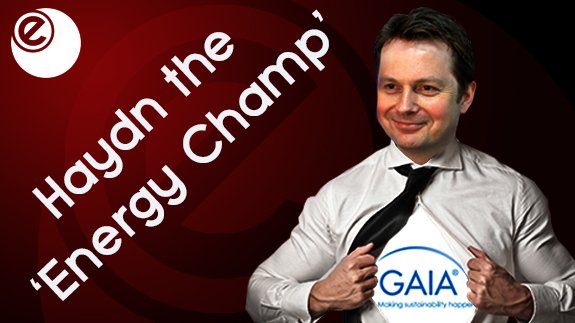The king is dead (DECC)
The removal of the Department of Energy & Climate Change (DECC) may have the greenos worried at the loss of ‘Climate’ in the title but climate mitigation is about actions to drive down carbon usage, not titles. DECC seemed preoccupied with creating new legislation rather than stimulating a market for energy efficiency investments.
The Energy Saving Opportunity Scheme (ESOS) was an example of good legislation but it failed to stimulate the market to further invest. DECC assumed businesses would invest without a time bound commitment which showed its lack of understanding of the way investment decisions are made in business.
Long live the king (BEIS)
With ‘Business’ in the new Department for Business, Energy & Industrial Strategy, we hope it has a greater understanding of markets. Incentives to buy items such as solar PVs to get a Feed-in Tariff (FiT) no longer makes sense. Admittedly they encouraged decarbonisation but they didn’t guarantee a reduction in overall consumption and pressure on capacity remained.
We, energy professionals, know what the best investments are for our organisations because we’re measured on ROI – so BEIS should focus on encouraging us to reduce carbon and energy overall and let us decide on our appropritate investments.
How to stimulate the market (take and give):
By having outcome-based incentive schemes (OBIS), businesses would be encouraged to make investments that show overall carbon reductions rather than a scheme that simply encourage the purchase of the government’s favourite piece of kit.
The ‘outcome’ scheme could work like this: Company A pays £100,000 a year in energy taxes (CRC+CCL) and wants to buy £25,000 of low energy lights. It requests 50% (£12,500) of the installment cost up to the maximum of tax paid to the Treasury. It buys and installs at its own risk and submits proof that investment has reduced its carbon emissions and so receives the tax rebate of £12,500.
This scheme would effectively halve the payback time and encourage businesses to invest more. Such schemes would use the tax kitty to stimulate investments, which enables market growth and creates new jobs. Market growth and employment taxes will then offset the original rebate, completing a virtuous circle.
Brexit Boost with little risk
Hinkley C showed BEIS is willing to take risks to secure good business relations. The risks for BEIS are moderate with most falling on businesses to prove savings to get their refund. If investments fails to work, no refund. The tax repaid has already been used in boosting the economy, creating wealth, jobs and more tax receipts offsetting Brexit concerns.
Good/bad idea? What do you think?? Click here to have your say.
Haydn Young is Director of energy training consultancy GAIA.
This is a promoted article.





